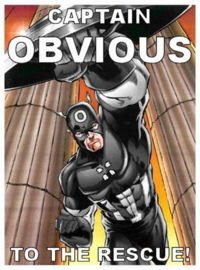Conflict Debt?
Harvard Business Review in its article "An Exercise to Help Your Team Feel More Comfortable with Conflict", discussed the idea of "conflict debt" and how it can harm your team or organization...


Rather than working through the conflicts that will help our organizations
move forward, we duck, dodge, and defer them.
The result is that most of us find our teams up to our eyeballs in conflict debt.
Conflict debt is the sum of all undiscussed and unresolved issues that stand in the way of progress. Conflict debt can be as minor as withholding the constructive feedback that would allow your colleague to do a better job and as profound as continually deferring the strategic decision about when to scale your new product line.
Paying down the conflict debt on your team is critical, but it won’t be easy.
The problem is that your team likely lacks both the skills and the mindset to use conflict productively.
I learned this early in my career. I had only been working for three months when I was chastised by a senior person for giving direct feedback to a colleague who had been making errors in reports to clients. My reputation suffered more for pointing out an error than his did for making one. Our conflict aversion runs deep.
For more info... https://hbr.org/2019/03/an-exercise-to-help-your-team-feel-more-comfortable-with-conflict?utm_medium=email&utm_source=newsletter_daily&utm_campaign=mtod_activesubs&utm_content=signinnudge&referral=00203
The result is that most of us find our teams up to our eyeballs in conflict debt.
Conflict debt is the sum of all undiscussed and unresolved issues that stand in the way of progress. Conflict debt can be as minor as withholding the constructive feedback that would allow your colleague to do a better job and as profound as continually deferring the strategic decision about when to scale your new product line.
Paying down the conflict debt on your team is critical, but it won’t be easy.
The problem is that your team likely lacks both the skills and the mindset to use conflict productively.
- One reason for that is that we’re biologically wired to get along with those in our in-group.
- Second, we’re socialized to be polite (did you have a grandma like mine who was fond of saying, “If you can’t say anything nice, don’t say anything at all?”).
- Third, once we enter the workforce, we’re rewarded for getting along with colleagues, and perceived poorly if we rock the boat.
I learned this early in my career. I had only been working for three months when I was chastised by a senior person for giving direct feedback to a colleague who had been making errors in reports to clients. My reputation suffered more for pointing out an error than his did for making one. Our conflict aversion runs deep.
For more info... https://hbr.org/2019/03/an-exercise-to-help-your-team-feel-more-comfortable-with-conflict?utm_medium=email&utm_source=newsletter_daily&utm_campaign=mtod_activesubs&utm_content=signinnudge&referral=00203



Comments
Post a Comment
Thank you for your feedback!